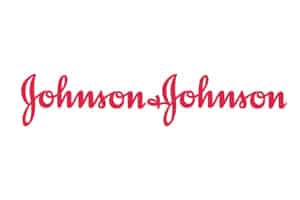
Johnson & Johnson’s just-announced share buyback does not mean it is retreating from its previously-announced search for acquisitions, according to chief financial officer Dominic Caruso.
He told investors yesterday that the $10bn buyback – which will be funded in part by taking on more debt – “in no way has any negative impact on our outlook for M&A and our pursuit of value creating acquisitions to drive shareholder value.”
Caruso’s comments came as J&J reported a 7.4% decrease in third-quarter sales to $17.1bn that resulted almost entirely from negative currency impacts, with underlying operational growth a little below 1%.
The pharma division saw sales reduce by the same margin to $7.7bn – a dip of 0.3% without the effect of negative exchange rate factors – with declines for inflammatory bowel disease and arthritis drug Remicade (infliximab) and Olysio (simeprevir) for hepatitis C virus offset by growth in newer products.
Olysio continued its slide in the face of competition from new HCV drugs from Gilead and AbbVie, with sales dropping from $796m in the same period of 2014 to $79m this quarter, while Remicade fell 9.5% to $1.61bn, once again on competition but this time from biosimilars.
On the plus side, Stelara (ustekinumab) for psoriasis grew 12.9% to $613m – ahead of expectations – although it is likely to face tough competition in future from new drugs such as Novartis’ Cosentyx (secukinumab) which has shown greater efficacy in trials.
Novel oral anticoagulant (NOAC) Xarelto (rivaroxaban) climbed 11.4% to $461m while Imbruvica (ibrutinib) for B cell cancers gathered momentum with a threefold rise in sales to $184m and diabetes drug Invokana (canagliflozin) was up 95% to $340m.
J&J is sitting on a lot of overseas cash – around $17bn – and is expected to use that for acquisitions as repatriating it into the US would leave it open to a heavy tax burden.
Such a move would be popular with investors who are keen to see the company put that money to good use, particularly after a reported bid for its Imbruvica partner Pharmacyclics was blocked after the latter consented to a takeover by AbbVie.
Some analysts suggested the buyback would delay any such plans, but Caruso insisted the move was ‘business as usual’ for J&J and follows a similar $5bn buyback in 2014.
“I wouldn’t interpret the $10bn share buyback as impacting our appetite for scale of any size at M&A at all,” he said.
“Our appetite for M&A – of any scale – has entirely to do with whether or not the acquisition is going to create value for shareholders.”




